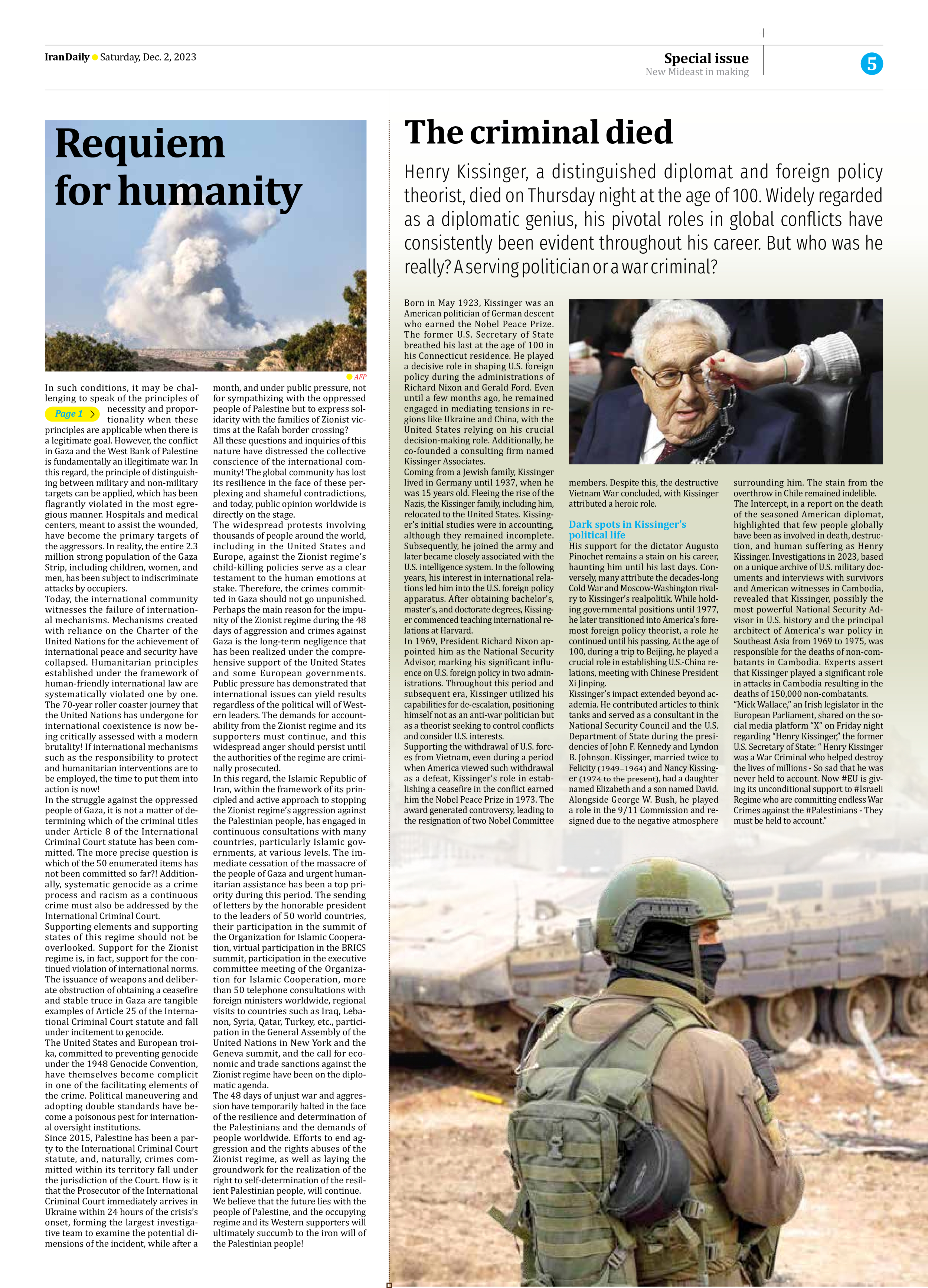
The criminal died
Henry Kissinger, a distinguished diplomat and foreign policy theorist, died on Thursday night at the age of 100. Widely regarded as a diplomatic genius, his pivotal roles in global conflicts have consistently been evident throughout his career. But who was he really? A serving politician or a war criminal?
Born in May 1923, Kissinger was an American politician of German descent who earned the Nobel Peace Prize. The former U.S. Secretary of State breathed his last at the age of 100 in his Connecticut residence. He played a decisive role in shaping U.S. foreign policy during the administrations of Richard Nixon and Gerald Ford. Even until a few months ago, he remained engaged in mediating tensions in regions like Ukraine and China, with the United States relying on his crucial decision-making role. Additionally, he co-founded a consulting firm named Kissinger Associates.
Coming from a Jewish family, Kissinger lived in Germany until 1937, when he was 15 years old. Fleeing the rise of the Nazis, the Kissinger family, including him, relocated to the United States. Kissinger’s initial studies were in accounting, although they remained incomplete. Subsequently, he joined the army and later became closely associated with the U.S. intelligence system. In the following years, his interest in international relations led him into the U.S. foreign policy apparatus. After obtaining bachelor’s, master’s, and doctorate degrees, Kissinger commenced teaching international relations at Harvard.
In 1969, President Richard Nixon appointed him as the National Security Advisor, marking his significant influence on U.S. foreign policy in two administrations. Throughout this period and subsequent era, Kissinger utilized his capabilities for de-escalation, positioning himself not as an anti-war politician but as a theorist seeking to control conflicts and consider U.S. interests.
Supporting the withdrawal of U.S. forces from Vietnam, even during a period when America viewed such withdrawal as a defeat, Kissinger’s role in establishing a ceasefire in the conflict earned him the Nobel Peace Prize in 1973. The award generated controversy, leading to the resignation of two Nobel Committee members. Despite this, the destructive Vietnam War concluded, with Kissinger attributed a heroic role.
Dark spots in Kissinger’s political life
His support for the dictator Augusto Pinochet remains a stain on his career, haunting him until his last days. Conversely, many attribute the decades-long Cold War and Moscow-Washington rivalry to Kissinger’s realpolitik. While holding governmental positions until 1977, he later transitioned into America’s foremost foreign policy theorist, a role he continued until his passing. At the age of 100, during a trip to Beijing, he played a crucial role in establishing U.S.-China relations, meeting with Chinese President Xi Jinping.
Kissinger’s impact extended beyond academia. He contributed articles to think tanks and served as a consultant in the National Security Council and the U.S. Department of State during the presidencies of John F. Kennedy and Lyndon B. Johnson. Kissinger, married twice to Felicity (1949–1964) and Nancy Kissinger (1974 to the present), had a daughter named Elizabeth and a son named David. Alongside George W. Bush, he played a role in the 9/11 Commission and resigned due to the negative atmosphere surrounding him. The stain from the overthrow in Chile remained indelible.
The Intercept, in a report on the death of the seasoned American diplomat, highlighted that few people globally have been as involved in death, destruction, and human suffering as Henry Kissinger. Investigations in 2023, based on a unique archive of U.S. military documents and interviews with survivors and American witnesses in Cambodia, revealed that Kissinger, possibly the most powerful National Security Advisor in U.S. history and the principal architect of America’s war policy in Southeast Asia from 1969 to 1975, was responsible for the deaths of non-combatants in Cambodia. Experts assert that Kissinger played a significant role in attacks in Cambodia resulting in the deaths of 150,000 non-combatants.
“Mick Wallace,” an Irish legislator in the European Parliament, shared on the social media platform “X” on Friday night regarding “Henry Kissinger,” the former U.S. Secretary of State: “ Henry Kissinger was a War Criminal who helped destroy the lives of millions - So sad that he was never held to account. Now #EU is giving its unconditional support to #Israeli Regime who are committing endless War Crimes against the #Palestinians - They must be held to account.”







